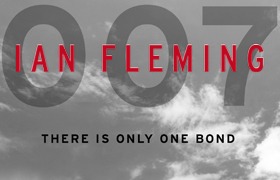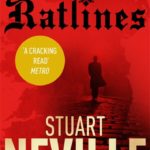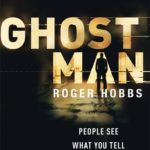Books
Miss Moneypenny Tells All
“What are the ingredients of a thriller?” asked the creator of James Bond in his 1962 essay How To Write A Thriller.
With the recent announcement of the four titles shortlisted for the 2013 CWA Ian Fleming Steel Dagger – the annual prize awarded to the best new thriller, adventure or spy story – this seems like a pertinent question to consider. With nearly 100 novels from seasoned and debut authors alike in the running for the much-coveted award, how does one go about choosing a shortlist of just four? What sets the ultimate winner apart from the rest? Time to go back to basics.
A quick look at the ingredients of the word ‘thriller’ itself reveals that the term originates from thyrlian, an Old English word meaning ‘to pierce’ or ‘penetrate’. Still relevant? Absolutely. A good thriller will stab you right through the heart, it will pierce your mind and penetrate your soul and will not relinquish its grip on your imagination until your trembling fingers have turned the final page. Once a well-written thriller has got its teeth into you, the banality of daily life should slip away, forgotten. For Fleming, this is the one key criterion of a great thriller: “you simply have to turn the page.”
But what makes a page-turner? Fleming advocates a “simple and unmannered” style, free from “wads of space filling prose”, as “each word must… interest or titillate the reader before the action hurries on.” This is not to say, however, that a decent thriller must be devoid of all poetry – Fleming also encourages ‘the total stimulation of the reader all the way through, even to his taste buds’. One of the most spine-chilling scenes in the whole Bond literary cannon is the moment in DR NO when Bond awakens in the middle of the night to the shiver of a centipede on his skin. The plot is scarcely advanced by this five page essay in creeping horror (the centipede, a warning from the good Doctor, could just as easily have been discovered and disposed of in one paragraph) but the reader, captivated by the deeply evocative description of Bond’s physical and mental state as the creature crawls up his body, cannot help but turn the page in grim fascination. The scene stimulates the senses in visceral detail, as almost every step of the centipede is described – it is a psychological study that serves to reveal an unexpected side to Bond’s character, as well as providing a short interlude in the action, without letting the reader relax for one second. The centipede’s bite could pierce his flesh at any moment.
Perhaps a good thriller should aspire to be like this centipede? Completely arresting to the senses from start to finish (Bond could feel it nuzzling at his skin), it should be tightly focussed on its ultimate goal (the grip of the feet was endless) but able to take the reader by surprise, to head in unexpected directions (God, it was turning down towards his groin!). It should have a bite to it (the animal was at the base of his jugular). It should be pacey and dangerous (now it was at the corner of his mouth) and well-cast with interesting characters (what the hell was it doing now?) The setting could be luxuriously exotic, as in Fleming’s Bond novels, or dark and ‘gritty’, but should always create an atmosphere that draws the reader in completely (Bond’s whole consciousness had drained down to the two rows of softly creeping feet). The plot could be realistic or fantastic or somewhere between, but should always be original and exhilarating (there was nothing he could do to control it), leaving the reader feeling breathless with anticipation (if it bit there surely it would kill him). In a crowded genre, a truly great thriller should be as suspenseful and shocking as a centipede on your ankle at 3am.

The CWA Ian Fleming Steel Dagger Shortlist
Further Reading:






Please note: Moderation is enabled and may delay your comment being posted. There is no need to resubmit your comment. By posting a comment you are agreeing to the website Terms of Use.